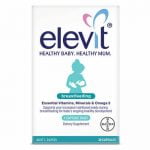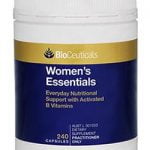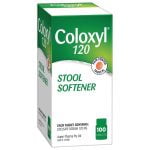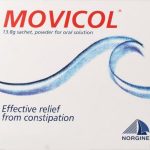The lead up to labour day (or a planned caesarean) is the primary focus for most pregnant women. The nerves and stress about pain overtakes the realisation that after this crazy ordeal you’re left with a tiny human being that you need to nurture while you have been through hell and back (literally). A good friend of mine described the scene of a maternity ward like being amongst battle victims, hobbling along, some unable to walk. It takes normally 6 to 8 weeks to recover, so it is super important to have a plan to take care of yourself, so you are able to take care of bub.
Help:
Yep, you’re going to need all the help you can get so make sure beforehand you have asked if any family or friends are able to help where possible in those first weeks. It could be with household chores like cooking and cleaning or help looking after bub so you can have a shower or take a nap. Draw on all the support networks you can, this is when you need it most.
Rest:
Newborns wake frequently through the night to feed so getting some rest during the day when they nap is important so you can survive the long nights. You need rest to recover from labour and especially if you’re breastfeeding to keep up milk production. Sleep also improves mood and a happy mum makes a happy baby.
Nutrition:
Having regular healthy meals is important for recovery, maintaining energy levels and milk production. However, when you have a newborn the time to prepare meals and to eat them barely exists. In the lead up (if possible) pre-prepare some frozen meals for your family that you can quickly pull out of the freezer and reheat. With my first, Isaac, I had no idea what I was in for, while with Ramsey I was a bit more prepared and organised some frozen meals while I was pregnant. I also take a multivitamin recommended for breastfeeding, Elevit Breastfeeding Capsules, which contains important vitamins and minerals that you need during this demanding time such as B group vitamins and Iron to improve energy. It also contains important vitamins for bub, such as Lutein and Betacaroten which supports eye health and Omega 3 for healthy brain function.

If you’re not breastfeeding you still need to make sure your energy demands and nutritional needs are met so that you can look after your little one. A great multivitamin to take is BioCeuticals Women’s Essentials Multivitamin which is formulated for the busy lifestyle of a mum. It contains a range of vitamins and minerals including activated B vitamins, iron and vitamin D3 to improve energy and vitamin K2 for heart health, including antioxidants.

Features
Formulated to provide nutritional support for key women’s health concerns: healthy blood, thyroid function, healthy glucose metabolism and bone health.
- Contains activated vitamins B6, B9 and B12, which unlike other Vitamin Bs are absorbed by all women which helps improve energy
- Daily dose provides 1000IU of vitamin D3.
- Vitamin K in the form of K2.
- Provides the immune-supporting nutrients vitamins A, C and D3.
- Vitamin E and selenium provide antioxidant activity.
- Biotin and zinc, with vitamins A and C help to support healthy skin.
- Includes KSM-66® withania, a standardised extract used in traditional Ayurvedic medicine as an adaptogenic herb, to support the body during times of stress.
- Pomegranate is included for its antioxidant properties, which help to reduce oxidative damage
Constipation:
This is a common complaint after birth for mums for many different reasons. Firstly, those who have had a caesarean or opted for an epidural aren’t moving around as quickly and so the bowel becomes sluggish. Secondly, if you take codeine-based pain relievers during labour they may also cause constipation. Thirdly, the high levels of hormones (namely progesterone) circulating from pregnancy can also cause constipation. Drinking plenty of water and increasing fibre in your diet helps to reduce constipation. In my experience with Isaacs birth, I suffered from a third degree tear which meant hard stool and straining would cause the stitches to damage and so stool softeners and laxatives were essential in my recovery. A good stool softener to have on hand is Coloxyl 120, as it is highly effective at softening stool and safe in breastfeeding. Movicol is the laxative I used and would recommend as it is safe in breastfeeding and effective at helping to clear the bowels. Movicol works by drawing water into the bowels which has a dual action of softening the stool and helping to clear out its contents.


Pain:
The pain of labour lingers for many mums in different ways, here are two that come to mind:
- After birth pains: These are cramp like contractions of the uterus as it shrinks back to its pre-pregnancy size. It is mainly experienced by second time mums and for subsequent deliveries as the muscle of the uterus has less tone than it did first time round. I can say taking a pain killer like Nurofen helps immensely and is safe for you and bub. These pains usually settle after a few days.
- Stitches: Whether you’ve had a caesarean, episiotomy or vaginal tear you will have stitches and they hurt as they heal. Panadol is a safe and effective pain killer to use in this instance. Make sure you also keep an eye on your stitches and keep them clean and dry to ensure the pain you are feeling is not from a developing infection.
Whatever pain you are feeling make sure you have it treated as pain can lead to poor sleep and mood, which are both experienced in the first weeks with a newborn.
Remember to look after you so you can give your baby the greatest gift of nurturing them.
Signing Out,
Sandra #everymumspharmacist










